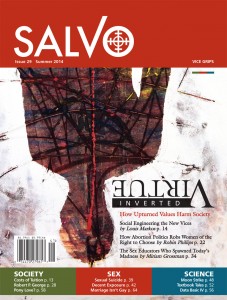From The Canterbury Letters:
[facebook-comments-master-un]
If we have a cognitivist anthropology of the human person, then we will see the job of the minister as being first and foremost to educate a person’s mind in correct doctrines. What results is that church begins to have a whole feel about it which is more like attending lecture than ascending into the heavenlies. If we emphasize, even implicitly, that worship is first and foremost about the teaching that is imparted and received, then this is probably because we have unconsciously imbibed an anthropology which assumes that our fundamental identity is cognitive. Such an anthropology cannot help but lead to an unbiblical ecclesiology, a subtle-deemphasizing of the sacraments and an inflated premium on doctrinal categories (it seems that this has happened in much of the Calvinist tradition, despite “officially” keeping Word and Sacrament parallel).
The alternative is to aim deeper than our minds at our heart, by nurturing a vision of the good life that seeps into our very gut. In Desiring the Kingdom, Jamie Smith argues that the way a vision of the good life seeps into our gut is by appealing first to our imaginations and aesthetic sensibilities through the habit forming rituals that are the fulcrum of desire. Many of the rhythms and rituals of the catholic (lowercase c) tradition do just that. Practices like genuflecting, crossing ourselves and kneeling to receive the blessed Eucharist, are more than merely accessories to the really important business of preaching the Word, but are part of a communal expression of what constitutes the good life. These physical practices seek to aim our desires through habit forming rituals involving our body. That is why rituals like this can so deeply inscribe a certain vision of the world in our hearts. Such practices get into our bones and prime us to a certain picture of human flourishing that penetrates deeper than mere cognition.
Three Ways You Can Support This Blog
Get a copy of my book……..Buy our Essential Oils…………..Subscribe to Salvo






